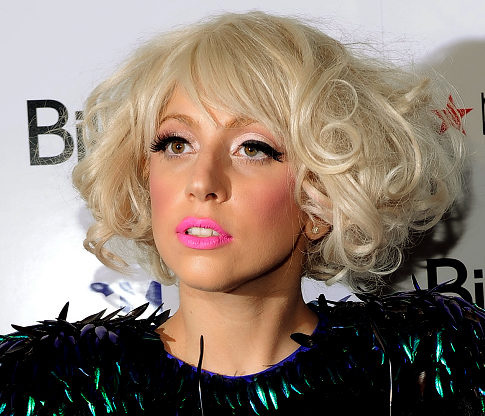The Kora All Africa Music Awards could be good for local music – if we knew how to exploit them, writes Thebe Mabanga Next weekend’s Kora All Africa Music Awards – the sixth of their kind – will, one hopes, be better received than last year. It was an event fraught with logistical problems, gripes from artists and cultural clashes.
This year, however, the Koras stand a better chance of sailing in tranquil success, given that there is greater involvement of high-profile partners.
The first improvement is the decision by satellite channel Black Entertainment Television International (BET) to become a broadcast partner. BET will offer its United States subscribers full coverage, in addition to the coverage usually offered by Canal France International and France’s MCM. This means that an estimated audience of 397-million from Asia, Europe and Africa will view the goings-on in North West province.
The second major development to boost the Koras is the ambitious launch of the US-based biennial Kora Honours. Starting next year at the Apollo Theatre in New York, the Kora Honours will be conferred to 10 artists from Africa and the African American diaspora.
The requirement will be that the artist must have won at least two Koras or two Grammy Awards in their careers. Next year two African artists will receive the award and as the pool of eligible African artists increases the proportional split of recipients will eventually even out.
Ernest Coovi Adjovi, executive producer and chairperson of the Koras, is content with the growth the awards have undergone, saying: “The Koras have opened doors for a number of artists in the continent.”
Adjovi’s South African example is Brenda Fassie, whose popularity has grown immensely in places such as West Africa since her routine appearances and victories at the Koras. This is confirmed by CCP Records public relations officer Mohloua Mile, who points to Fassie’s numerous invitations to North and West Africa.
Though South Africans may not enthuse over the Koras, the local music industry has enjoyed dominance on its platform, winning 16 of the 70 awards that have been handed out since its inception.
The Democratic Republic of Congo and Senegal, for example, have won only seven awards each.
When Nigerian superstar Femi Kuti won his two Koras in 1999, he received a hero’s welcome from 150,000 fans on his return to Lagos. Yet South Africa seems reluctant to celebrate its Kora conquerors.
“I think there needs to be a bit of education. South Africa has too much nationalism and not enough Pan Africanism,” Adjovi says.
Throughout the Koras’ existence, the view has persisted that not enough was being done, in South Africa at least, to tap into the momentum created by the event to heighten exposure to continental artists. One of the few outlets to continually expose the music that characterises the Koras is Johannesburg-based adult contemporary music station Kaya FM.
The station’s programme manager Tebogo Matima says: “Our wish is to use [the Koras] as a conduit to continue to expose African artists.”
Matima cites instances where Kaya and the Kora office have obtained work of nominated artists that was not available in South African music stores. This has led to heightened interest for artists like Logomba, but he says: “It is for the buying public to conscientise the retailers.”
Matima voices support for the idea of extending the Koras to the diaspora. “It is a noble step to broaden the recognition – as long as it is not done at the expense of African artists.”
His colleague, Nicky Blumenfeld, holds a slightly different view. “I do not think that the Koras are about music at all. Music is just a decoration,” she says. Blumenfeld believes the event is dominated by politics and cites last year’s ceremony, which spotlighted politicians and not people from the music community.
Adjovi counters this view by saying of all the awards handed out on the big night only the lifetime achievement is political. “Besides, without the input of politicians, there would be no music industry.”
Blumenfeld is positive about the judging process, though, saying “the Koras have managed to get interesting and knowledgeable people” to decide the winners.
When she was a judge two years ago Blumenfeld was joined by top music journalists from around the continent under the leadership of music producer and magnate Wally Badarou.
But Blumenfeld then laments the Koras inability to reach out enough to artists, pointing out that the nominations are received mainly from record companies in Paris, Johannesburg and the Central Lakes region.
She suggests an increased presence at leading music events such as the world music trade fair, Womex, now on in Rotterdam and Midem, and a smaller event held in the south of France.
Adjovi concedes the need for this heightened presence, but cites financial constraints as a major obstacle.
This year 62 artists have been nominated across 14 musical categories. South Africa has scooped 14 nominations, some rather amusing.
Kwaito group Mafikizolo have a nomination in the best traditional music category for their hit Majika. They have also been nominated in the best video category. Flying the flag with them will be stablemates Bongo Maffin (best African group), Chiskop (best video), Gloria Bosman (best artist: Southern Africa, best promising female artist) and the inaugural Kora lifetime achievement award recipient Miriam Makeba (best arrangement).
Artists from the African diaspora playing this year include gospel vocalist Bebe Winans (nominated for best artist, diaspora, North America), new R&B quartet Prophet Jones and commercial ragamuffin icon Shaggy.
They will be matched by continental talent ranging from Koffi Olomide’s former band Felix Wazekwa (nominated for the best Central African artist) and previous local winners Bongo Maffin and Brenda Fassie.





